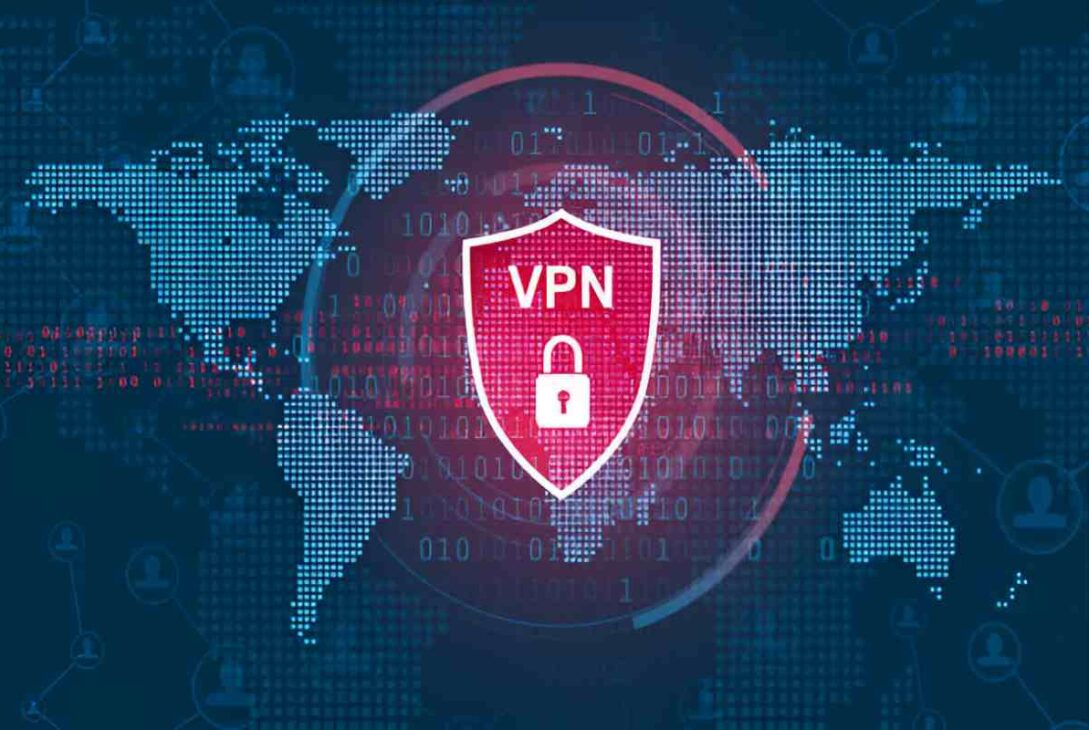The Virtual Private Network (VPN) is one of the most efficient ways to safeguard your web activities. VPNs enable individuals to hide their IP address, encrypt their internet traffic, and keep their web browsing a secret, thereby avoiding cyber threats, tracking, and other privacy-related issues.
A VPN functions by directing your web traffic through an external server, usually in a foreign country or region, thus concealing your actual IP address. This automatically makes it seem like you are accessing the web from another place, providing anonymity while on the internet. In addition, VPNs can encrypt information sent via the internet, thereby keeping sensitive information safe from cyber attackers and other malicious parties.
How does a VPN Work?
A VPN (Virtual Private Network) establishes a safe, encrypted connection between your device and a far-off server. When you connect to a virtual private network, your online traffic is tunneled through this server, concealing your actual IP address and making your activity seem to originate from the server’s location. This encryption keeps your information confidential and safe, shielded from hackers, ISPs, and other third parties. VPNs also assist in avoiding geo-blocking, with the ability to view content that could be restricted in your area by accessing servers in different nations.
US Proxy Address: How VPNs Help Mask Your Location
Among the significant reasons people use VPN services is access to content that might be blocked due to geography. For instance, video streaming platforms such as Netflix, Hulu, or BBC iPlayer usually block access to their content by the user’s geographical location. Through a VPN, users can join a server within a different location and get an IP address in another country, which grants them access, bypassing these geographical restrictions.
It is beneficial to a user who requires access to US-restricted content. By accessing a server within the US, the user’s web traffic looks like it originates from a US IP address. Thus, they can access US-specific content or even utilize services that Americans alone can access. A US proxy address can further assist in avoiding censorship and unlocking region-locked websites, which benefits tourists, expatriates, or anyone outside the US.
In addition, connecting with a US proxy IP address via a VPN can protect your internet connection while surfing public Wi-Fi networks. It encrypts your traffic to protect your data from eavesdropping and cyberattacks, even on open connections like airports or cafes.
The Key Benefits of Using a VPN
- Enhanced Privacy: A VPN conceals your original IP address, making your online activities anonymous. This makes it harder for third parties, such as websites, marketers, and even your Internet Service Provider (ISP), to monitor your browsing history.
- Access to Geo-Restricted Content: As noted, access to geo-blocked content is probably the most popular use of a VPN. By joining servers located in other countries, users can bypass geographic limitations and have access to websites, streaming media, and services that otherwise cannot be accessed in their area.
- Improved Security: VPN employs encryption protocols to protect your data from hackers while connected to public Wi-Fi networks. Such security is crucial in securing sensitive information like credit card numbers, passwords, and personal data.
- Bypass Government Censorship: In nations where internet use is largely censored or restricted, a VPN allows people to circumvent government-established blocks on services and websites. This makes open and free access to the global internet possible.
- Safe Online Shopping: When doing online shopping, particularly on unknown websites, a VPN can assist in keeping your financial information safe by ensuring your connection is encrypted and secure.
How VPN relates to Audience?
For audience, using a VPN offers essential privacy, security, and freedom online. Whether you’re concerned about protecting sensitive personal data or bypassing geo-restrictions for content, a VPN ensures safe browsing, especially on public networks. In an age where online tracking and data breaches are common, a VPN provides peace of mind, ensuring that your online actions remain private and protected. Moreover, with servers across the globe, you can effortlessly access region-blocked content, making a VPN an essential tool for digital freedom, anonymity, and worldwide connectivity. It’s the ultimate solution for staying anonymous and in control in a more connected world.
Conclusion
A VPN is an effective mechanism for online protection, privacy, and access to censored material. Users can leverage several advantages, such as viewing US-specific material through a US proxy address. As cyber threats continue to advance, employing a VPN is one of the most operative ways to stay harmless while browsing the internet and keeping your data private and secure at all times. Whether accessing geo-blocked content, protecting your personal information, or bypassing censorship, a VPN offers a reliable solution to many of today’s digital security challenges.



